TURBULENCE AND CONSEQUENCES
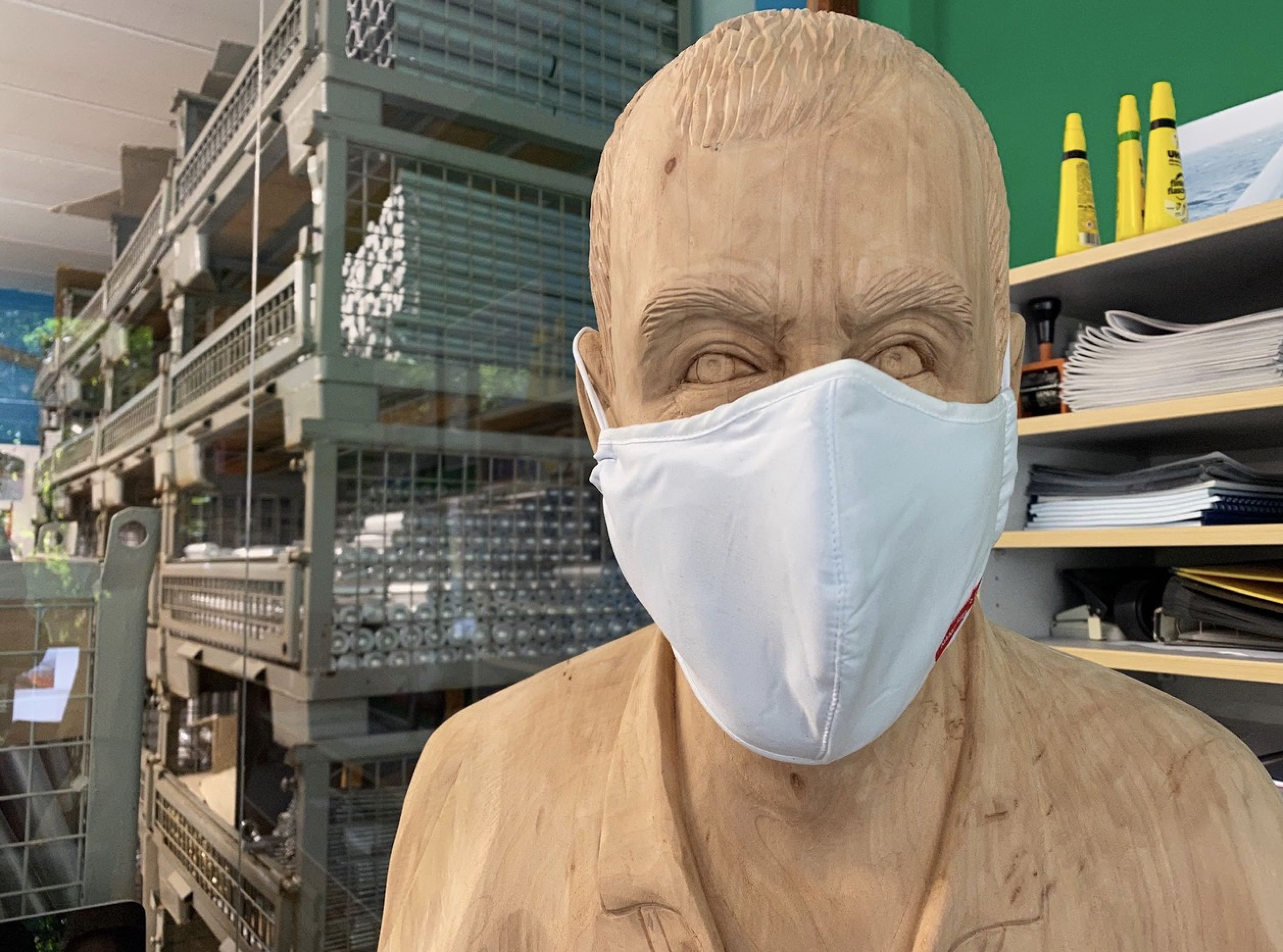 Whoever could have guessed,
Whoever could have guessed,
that an unwelcome novel virus guest
would leave our world in such a mess?
At first no more than a story
in news from distant lands,
it appeared all at once among us
to make a mockery of all our plans.
Whoever would ever have seriously thought
that the world could possibly just screech to a halt
and leave us stuck, one and all
washed up, aground within our four walls,
caring for each other
or pining for each other,
and discovering now and again,
in between daydreams of sea, wind and rain,
that with our big goals suddenly on hold, beyond chasing,
even the little things can still set the heart racing?
Whoever would have believed
we would find ourselves having the rethink everything?
Our future will not
be the one we had planned.
So what will it be?
Where do we stand?
Where do we start
with this enforced fresh start?
We start, I would suggest,
by searching within,
looking hard in the mirror,
going under our skin.
Most of the answers,
the what, when and how
are already in our heart
or there behind our brow.
No need for anxiety, no need for despair!
 Really not? I’m starting with me because I know me best. I build windy pilots – and have done for almost as long as I can remember. I know what I’m capable of and I have confidence in myself – confidence I built the hard way through years of trying to keep people happy at a time when I hadn’t yet also how to understand people and their motives. These last few weeks have brought a strong sense of déjà vu as once-familiar thoughts suddenly burst back into life before my nose and dance around in my brain. Did I do something wrong? I don’t think so. Business-wise I have kept both feet firmly on the ground and resisted the temptation to try to fly ever higher.
Really not? I’m starting with me because I know me best. I build windy pilots – and have done for almost as long as I can remember. I know what I’m capable of and I have confidence in myself – confidence I built the hard way through years of trying to keep people happy at a time when I hadn’t yet also how to understand people and their motives. These last few weeks have brought a strong sense of déjà vu as once-familiar thoughts suddenly burst back into life before my nose and dance around in my brain. Did I do something wrong? I don’t think so. Business-wise I have kept both feet firmly on the ground and resisted the temptation to try to fly ever higher.
“Make the best of it” was my first reaction. Perhaps, I thought, the time had finally come to start sorting out some of the things I’ve always put off for later: browsing through old photos and putting them into some kind of order, reciting poetry, contemplating the mysteries from a rocking chair… Saying it is one thing, actually beginning to wade through the endless piles of faded, dog-eared papers that were, by definition, too important to dismiss completely but, even in their day, not important enough to deal with at the time is quite another. And then there are the countless folders full of framed photos, the hard disks and the ominous memory sticks and cards lurking at the back of drawers… I have been on the lookout for good photos constantly for decades anyway when I think about it: my interest in using images to illustrate what Windpilot is all about didn’t suddenly blossom when I decided to add pictures to liven up my blog. And in any case, I didn’t feel like sorting out photos.
The zero hour, the day on which we awoke to find the plug had been pulled on business as usual and our city, usually so thronged with traffic wheeled and winged, had fallen silent: just what exactly are we living through, we wondered. What are we missing? Which aspects of this new normal can we learn to live with (or even welcome) and which might never cease to grate? Everything was suddenly different, from one day to the next. It struck me that what I saw all around me was precisely the type of scenario I had feared over the decades when contemplating where to go next with Windpilot. Had I yielded to the pressure of custom and the textbooks and used all of the value of the company to pursue expansion, I would now be in the same boat as all those millions of small businesses that see their pathway to the future cut off by a yawning chasm of debt. We have been happy to remain a modest enterprise, manufacturing to an industrial standard but on a small scale and with no reliance on critical suppliers in far-flung corners of the globe. The only supply chain disruption we have to worry about is what happens when the delivery truck breaks down…
Life gifted me plenty of experience early on, both professionally and privately, of people who do not comprehend how to look beyond their own perceived immediate self-interest (or even why they might want to). The lesson was not wasted. The freedom to make my own decisions matters very much to me because it allows me to respond flexibly to changes in the market. Most importantly, I only have to provide for myself and do not have to worry about the impact on, or reproaches of, any employees whose fortunes rise and fall in lockstep with those of the company. CEO might sound grand as a title, but the role involves a dark side of inescapable tortuous decisions with long-term consequences. That sort of thing is not for me – at least not while I still have full use of my hands and a mind sharp enough to remember my own name.
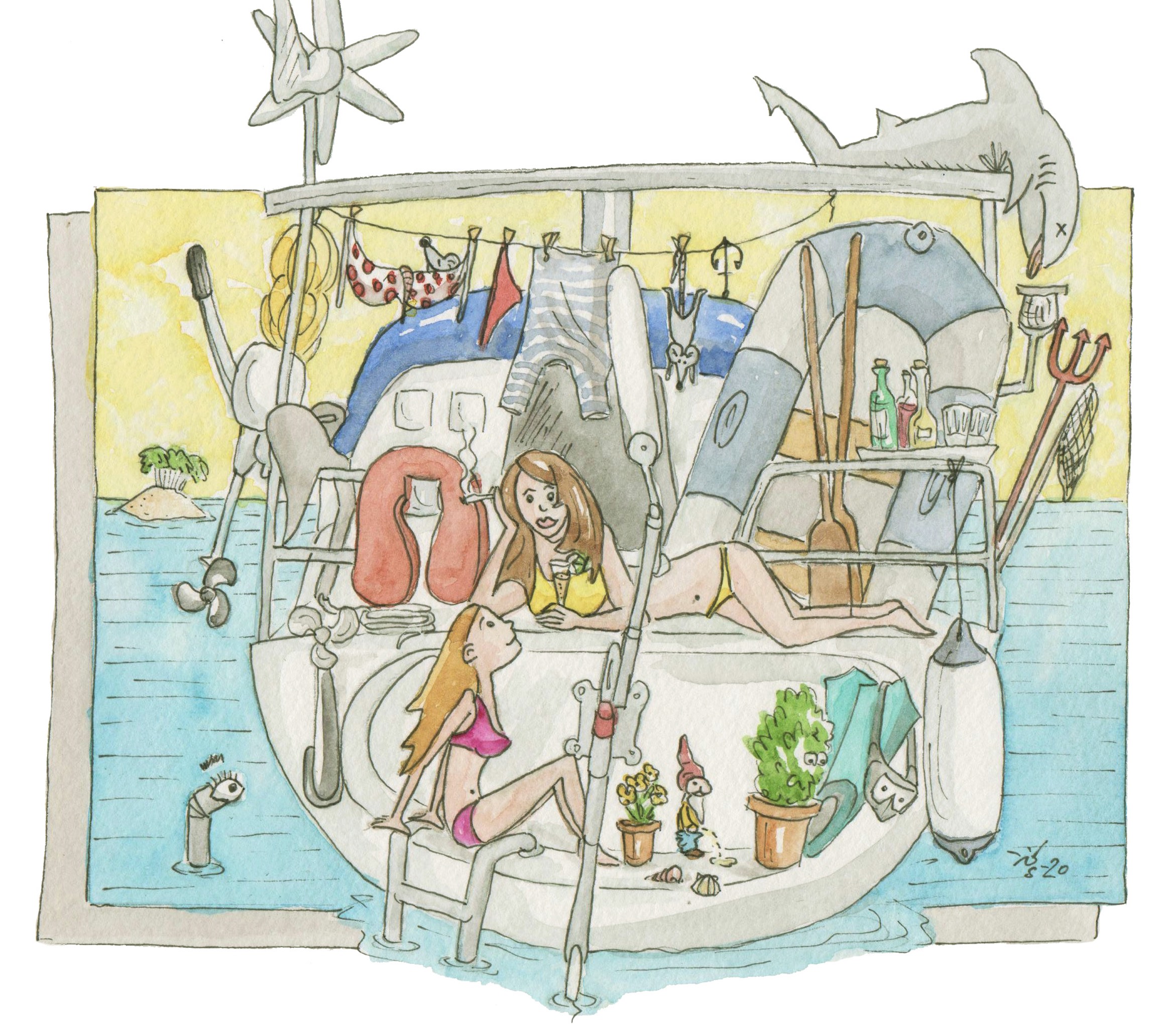 There is no precedent for the dramatic changes impacting markets at the moment. Demand for windvane self-steering systems, which can carry on working almost indefinitely with a little care and respect, is essentially immune to fashion and short-term trends, so the effects of the current disruption on our niche market will tend to be delayed and spread out. In our business, as I am constantly reminded, we have to find precisely one new customer for every unit because most sailors will only ever purchase one. Seeking to achieve this through advertising and marketing campaigns would be a hugely costly undertaking, which is why I leave the job to the sailing community. They spread the word for me very effectively with no additional cost, which has enabled me to keep my prices steady for many years (with obvious consequences for other players in my market). I wouldn’t be surprised if this is a unique selling point in our current era.
There is no precedent for the dramatic changes impacting markets at the moment. Demand for windvane self-steering systems, which can carry on working almost indefinitely with a little care and respect, is essentially immune to fashion and short-term trends, so the effects of the current disruption on our niche market will tend to be delayed and spread out. In our business, as I am constantly reminded, we have to find precisely one new customer for every unit because most sailors will only ever purchase one. Seeking to achieve this through advertising and marketing campaigns would be a hugely costly undertaking, which is why I leave the job to the sailing community. They spread the word for me very effectively with no additional cost, which has enabled me to keep my prices steady for many years (with obvious consequences for other players in my market). I wouldn’t be surprised if this is a unique selling point in our current era.
Comparing our situation in the windvane self-steering market to other areas of the economy reminds me once again how thoroughly loyal I have been to the KISS principle. It remains my guiding light – and not just in business either. At the risk of coming across all antediluvian, I suggest keeping it simple will prove a pretty effective policy for any of life’s meaningful decisions.
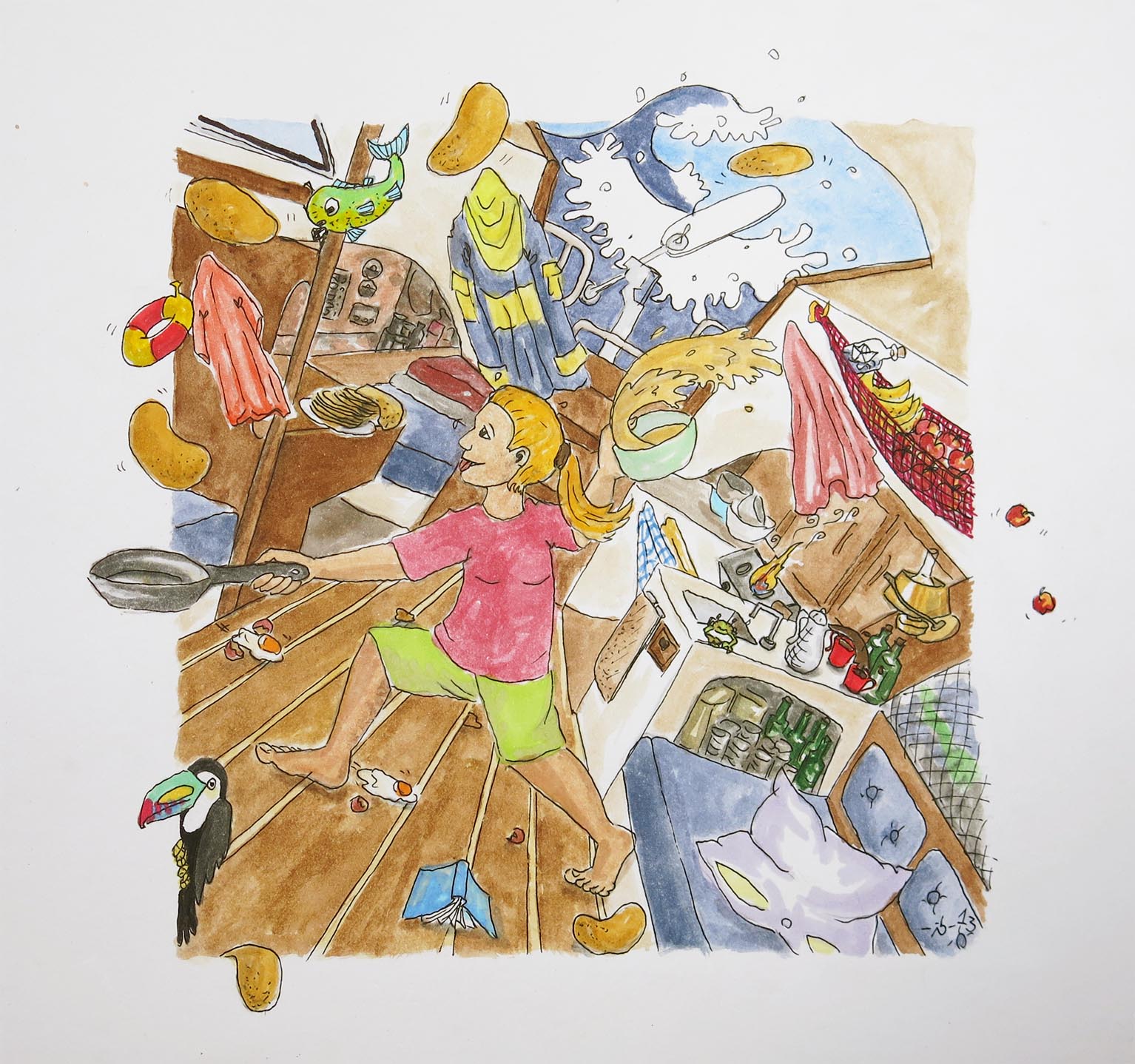 Perhaps it will not be long before we are presented with boats that can reverse park themselves in the same way as self-driving cars. What a dilemma we shall face then! Should we bother loading ourselves into the self-driving car for the journey to the self-driving boat or might we just as well keep our tender parts close to the central heating and experience the thrill of the sea by live stream for the sofa? This would render the whole quarantine issue irrelevant too because none of the boats underway would be inhabited and AIS could ensure they all maintain their distance in any case. Could work for planes too now I think of it!
Perhaps it will not be long before we are presented with boats that can reverse park themselves in the same way as self-driving cars. What a dilemma we shall face then! Should we bother loading ourselves into the self-driving car for the journey to the self-driving boat or might we just as well keep our tender parts close to the central heating and experience the thrill of the sea by live stream for the sofa? This would render the whole quarantine issue irrelevant too because none of the boats underway would be inhabited and AIS could ensure they all maintain their distance in any case. Could work for planes too now I think of it!
It might sound unlikely, but then this is the world in which some “yachtsmen” already choose to spend the day observing the harbour from the deck saloon while the roast sizzles in the 220 V built-in galley oven before retiring for a warm shower and blow-dry ready to toast the sunset with an ice-cold bottle of champagne – all, naturally, documented in high-res via Iridium to feed the envy of the Insta-Farcebook community, without which none of it would be worthwhile and everyone might just as well have stayed in bed… Perspective, perspective, perspective!
I’m exaggerating of course and anyway, we all know what a challenge it is just to keep all of the systems we already have on board functioning properly for any length of time. Armies of service engineers wrestling with uncooperative technology under the worried gaze of owners and crew used to be one of the constant themes of my annual autumn pilgrimage to Las Palmas. “Let’s just hope the toilet carries on working,” they would say with a chuckle – not fooling anyone… Smart boats and the KISS principle are surely fundamentally incompatible, which is going to make for interesting times at sea when the rising generations of digital natives cast off for real (assuming, of course, that they ever do decide to do it for real).
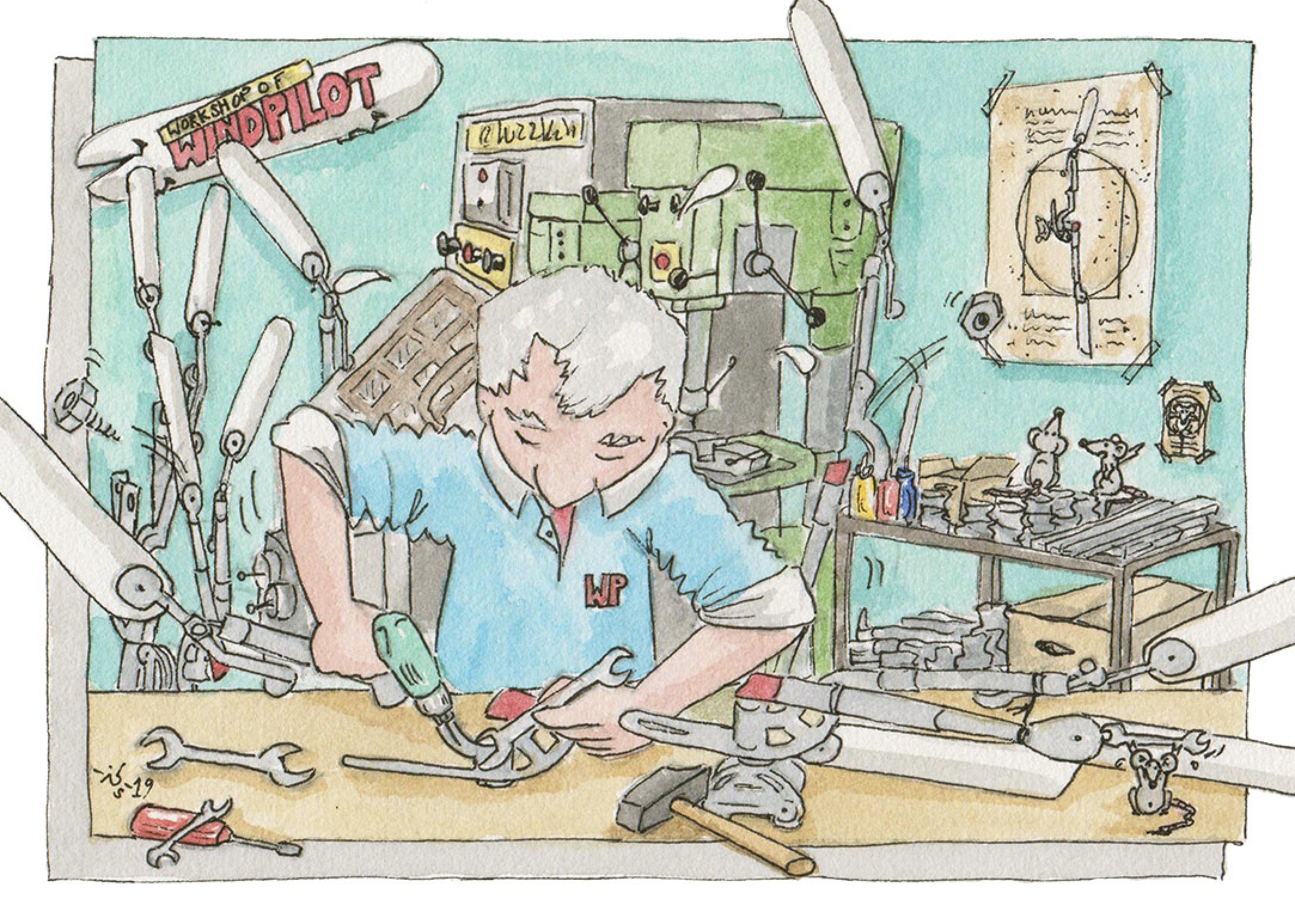 Happily we do still have a great community of sailors who have been loyal to their boat for decades, treating it as one of the family, tending to its needs with their own hands and, as a consequence, enjoying contented times at sea untroubled by mysterious problems emerging from unfathomable black boxes. Their boats were built strong at a time when sailing was about reliability and ease of maintenance (rather than features and the illusion of convenience) and KISS was the obvious way to go. Sailing can be straightforward even today of course. Accept a few ground rules and you too can have a life at sea like the one Kicki Ericsson and Thies Matzen have been living on Wanderer for decades.
Happily we do still have a great community of sailors who have been loyal to their boat for decades, treating it as one of the family, tending to its needs with their own hands and, as a consequence, enjoying contented times at sea untroubled by mysterious problems emerging from unfathomable black boxes. Their boats were built strong at a time when sailing was about reliability and ease of maintenance (rather than features and the illusion of convenience) and KISS was the obvious way to go. Sailing can be straightforward even today of course. Accept a few ground rules and you too can have a life at sea like the one Kicki Ericsson and Thies Matzen have been living on Wanderer for decades.
When windvane self-steering systems were first developed, they were a logical invention and more or less a prerequisite for long-distance voyaging. How many other aids and add-ons have become “essential” in the years since – despite the wind and waves posing exactly the same challenge they always have? Always there has to be compromise, as I emphasise and reiterate time and again in the regular back-and-forth of questions and answers that precedes most of my sales. Bad choices can have bad consequences, as we know, but that doesn’t mean discussing the options and their implications shouldn’t be fun. One of my favourite scenarios involves the objection that those two steering lines essential for connecting servo-pendulum gear to main rudder might get in the way. Ropes? In the way? On a sailing boat? Infamy! Why not, I like to suggest, consider a power boat instead? You only need string on a power boat to hold the bikinis in place. The discussion about smart autopilots is quickly dismissed too: just about everyone who buys a windvane self-steering system already has an autopilot on board.
 It’s interesting how the word smart has come to be used now. I actually try to avoid it in a technology context, not just because it seems to be the very opposite of KISS but also because I don’t like the implication: if the technology is smart and it doesn’t work for me, I must dumb, correct? Smart technology leaves me smarting from the pain of being reliant on devices whose behaviour is beyond my control.
It’s interesting how the word smart has come to be used now. I actually try to avoid it in a technology context, not just because it seems to be the very opposite of KISS but also because I don’t like the implication: if the technology is smart and it doesn’t work for me, I must dumb, correct? Smart technology leaves me smarting from the pain of being reliant on devices whose behaviour is beyond my control.
The cloud bothers me too even though I know it has nothing to do with rain looming on the horizon. Who calls the shots up there in cloud land? Who is at the controls? Not me, that’s for sure. Any more than I have any control over all the data with connections to my person that apparently resides in various nameless databases. I was recently informed, quite out of the blue, that I belong to a vulnerable group in society that has been singled out for special protection. How? Why? And why me?
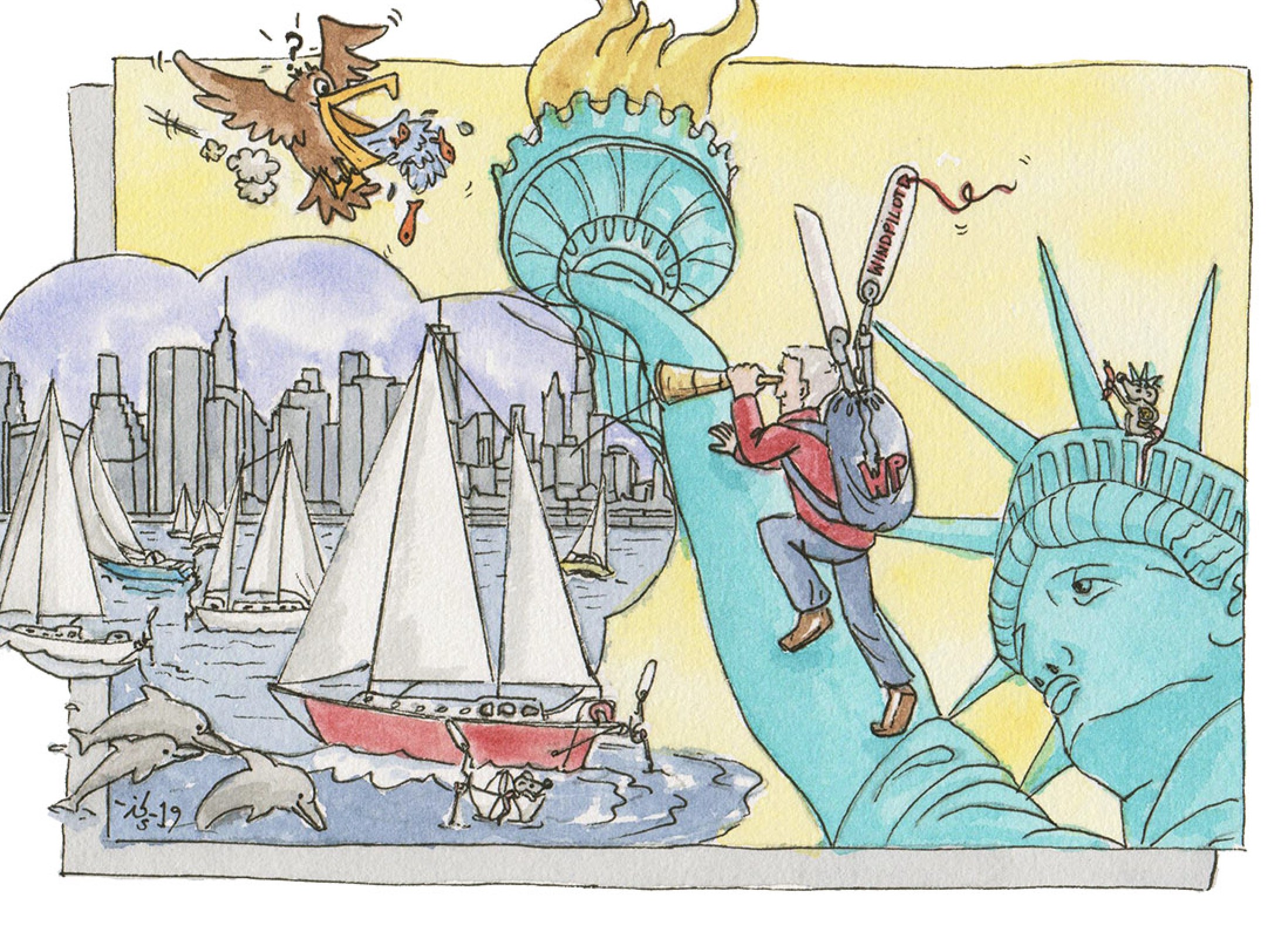 The world has undoubtedly changed. At Windpilot, however, the song remains the same – although we do seem to be receiving an unusually large number of visits from sailing cowboys, their neckerchiefs drawn up close under the eyes (I can barely recognise them by sight, but their voices still give them away even from a distance of two metres). The prices we are paying for airfreight now would have bought me a first class ticket to make the delivery in person not so long ago (UPS always wins at price roulette) and more remote destinations are now unreachable, but we can live with that for the time being. One thing that is completely new: we have started receiving payments in full to our account from the USA and Canada with covering notes saying “no hurry with delivery” or words to that effect. Lockdown or no lockdown, I am tremendously encouraged to learn that people’s trust in Windpilot endures.
The world has undoubtedly changed. At Windpilot, however, the song remains the same – although we do seem to be receiving an unusually large number of visits from sailing cowboys, their neckerchiefs drawn up close under the eyes (I can barely recognise them by sight, but their voices still give them away even from a distance of two metres). The prices we are paying for airfreight now would have bought me a first class ticket to make the delivery in person not so long ago (UPS always wins at price roulette) and more remote destinations are now unreachable, but we can live with that for the time being. One thing that is completely new: we have started receiving payments in full to our account from the USA and Canada with covering notes saying “no hurry with delivery” or words to that effect. Lockdown or no lockdown, I am tremendously encouraged to learn that people’s trust in Windpilot endures.
Rest assured, we’re still here and we’re ready and waiting – as ever – to help when you need us!
Hamburg 12.05.2020
Peter Foerthmann





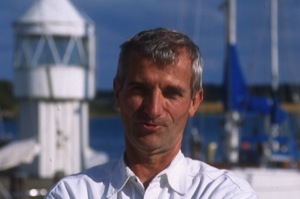
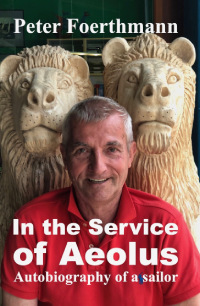

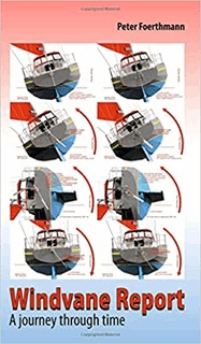
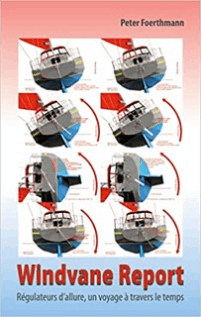
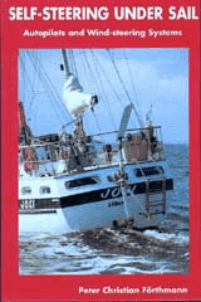
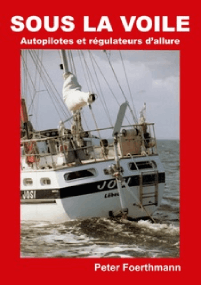
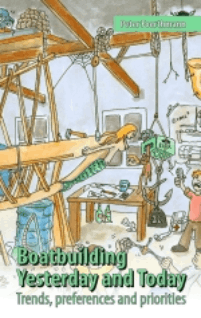
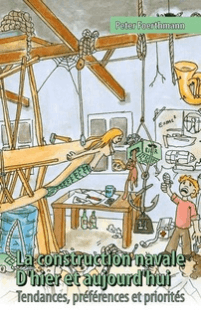
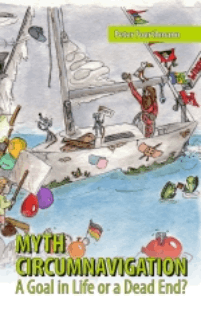
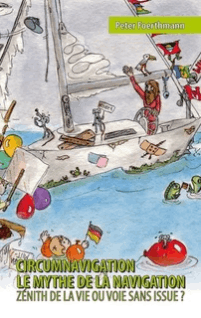
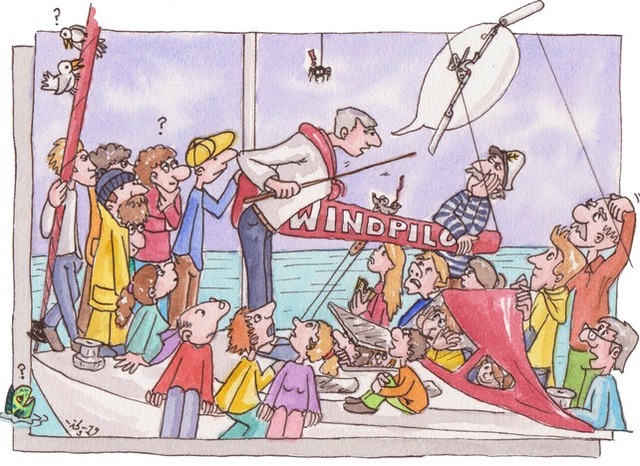
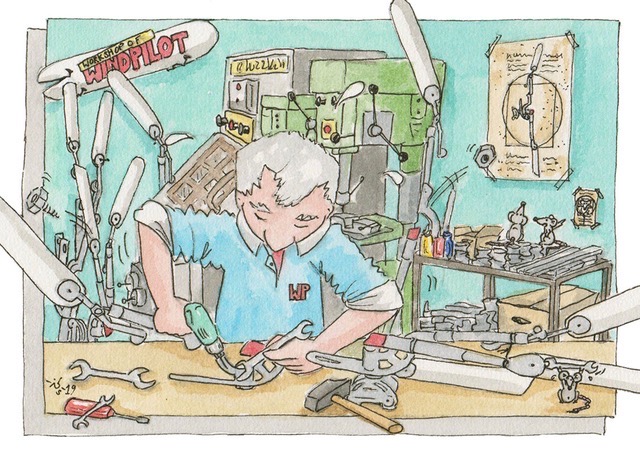
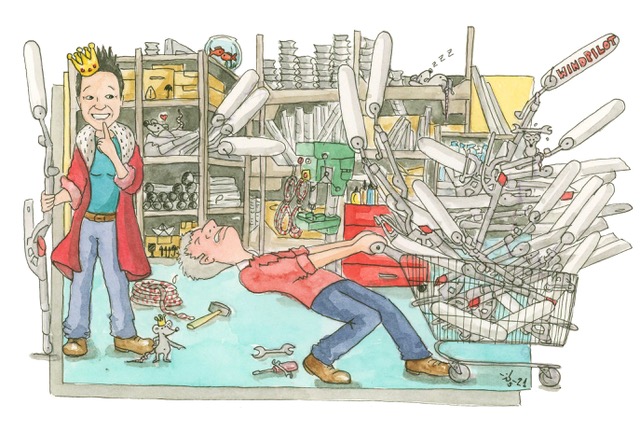
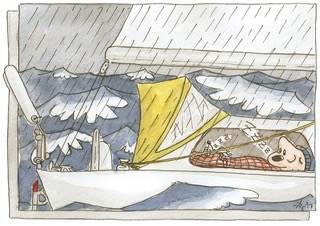
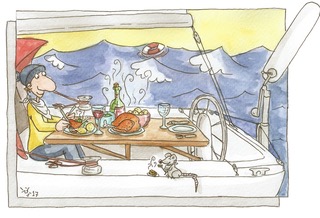
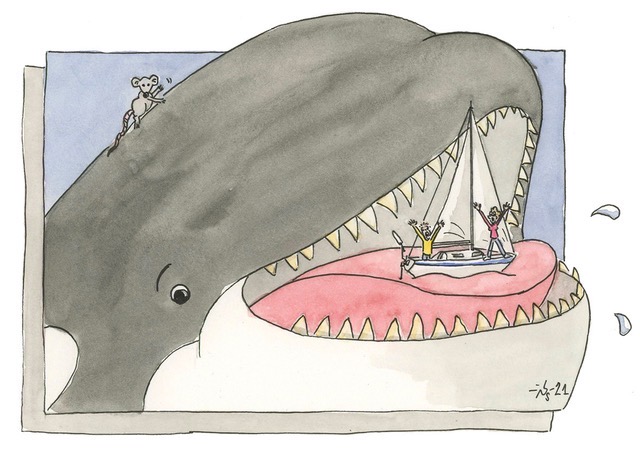
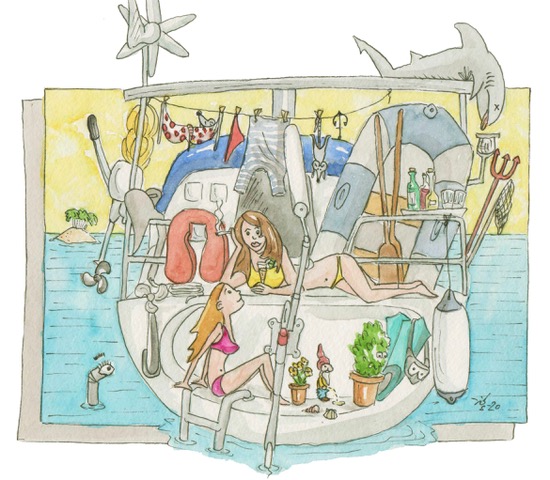
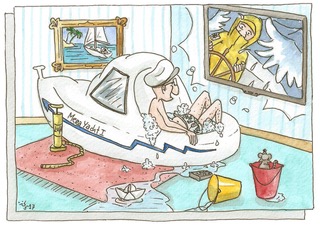
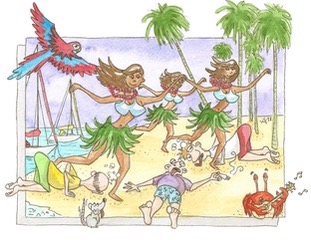
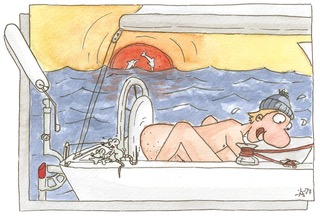
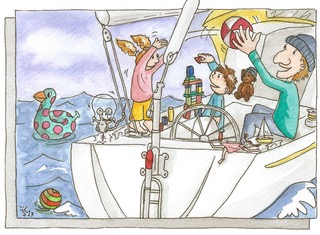
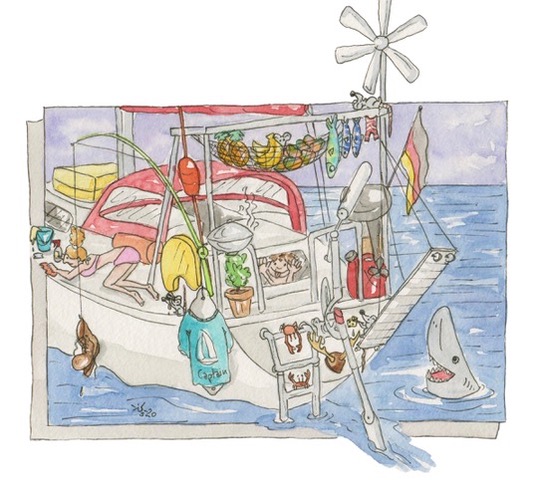

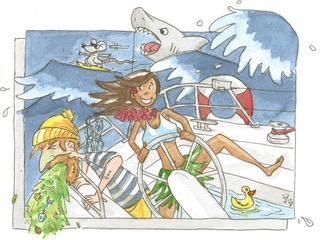
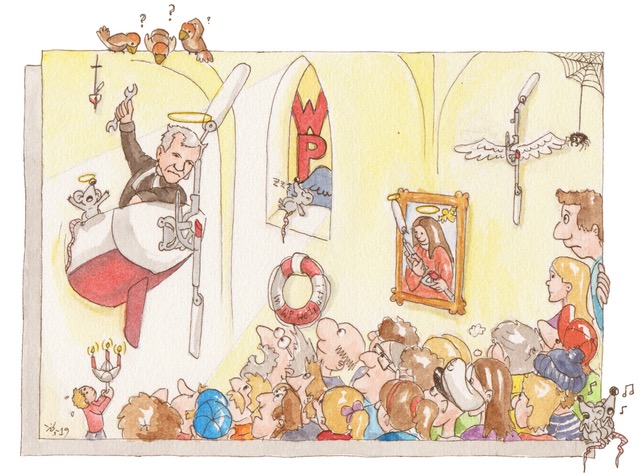
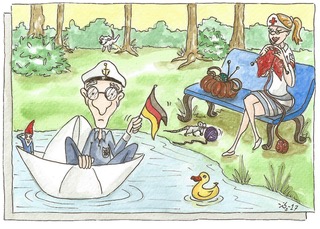
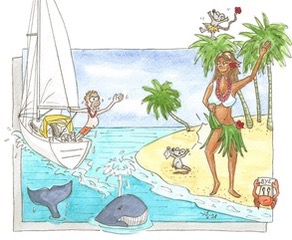
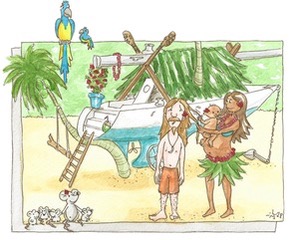
Good day sir.
I have a dana 24. Where do I place my order at.